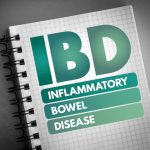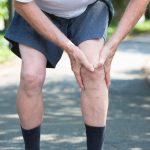Following an Autoimmune Protocol Diet eliminates foods that cause your body to react with horrible symptoms, and ensures you are receiving all of the benefits of superfoods. Understanding the eliminating and reintroducing eating plans can get confusing, so this post is to help you better understand the process.
When you have an autoimmune disease you basically have an immune system that is betraying you. Instead of protecting you from invading microorganisms, it attacks certain cellular proteins in your own body and sadly, in some autoimmune conditions this attack can be lethal. This is because your immune system incorrectly thinks it is saving you from let’s say a life-threatening virus but in a devastating turn of events, it is actually attacking the body it should be protecting. This mistaken identity is the cause of many autoimmune conditions, and there are hundreds of them.
Common autoimmune conditions include Rheumatoid arthritis, Hashimoto’s, Celiac Disease, Ulcerative Colitis, Type 1 diabetes, Crohn’s Disease, Multiple Sclerosis, Sjogren’s syndrome, Lupus (SLE), Psoriasis to name a few however science is also suspecting that other devastating diseases may also be linked to autoimmunity and these may surprise you, especially considering that having one autoimmune disease may make you far more susceptible to getting more autoimmune diseases. For example, a 2016 scientific study published in the Journal of Epidemiology and Community Health highlighted that autoimmune sufferers admitted to hospital are 20 per cent more likely to be re-admitted at a later date with dementia.
Those health conditions suspected, yet not confirmed of having an autoimmune link or origin include:
- Dementia
- Alzheimer’s disease
- Epilepsy
- Schizophrenia
- Parkinson’s Disease
- Fibromyalgia
As a person with the autoimmune condition Hashimoto’s Thyroiditis I most certainly do not want to develop other confirmed autoimmune diseases, nor do I wish to suffer from dementia or other diseases thought to have an association with autoimmunity.
What Can Happen to My Body if I Don’t Follow an Anti-Inflammatory Meal Plan?
Many people are surprised when I share some not so obvious inflammatory autoimmune symptoms. They include anxiety & depression, irritation, insomnia & sleep disturbances, digestion problems, blood sugar imbalances, extreme fatigue, feeling “generally unwell” a lot of the time, memory decline, muscle and joint pain, muscle weakness, headaches, skin rashes, hormone imbalances such as PMS, allergies and more.
What continues to concern me is the fact that most people fail to understand the critical importance of following a healthy eating plan in managing their autoimmune condition. With dietary triggers being one of the most important and powerful triggers in autoimmunity, this is where autoimmune sufferers have real power to help themselves.
Another key point relates to the loss of the protective gut barrier function and a lack of healthy gut microflora contributing to autoimmunity. What this means is that autoimmune symptoms will improve for many once you have a healthy gut barrier and healthier gut microflora. In most circumstances, your diet is the biggest healer.
In this blog, I will share the dietary basics for the autoimmune diet. This is a diet and lifestyle that helps many autoimmune sufferers overcome a range of symptoms and complaints by incorporating foods that heal the body naturally.

What is the Process of Elimination and Reintroduction?
It starts with the elimination of certain foods followed by a period of reintroduction. Basically, foods known to drive inflammation are eliminated for a specific time (normally no less than 30 days, and often more). This timeframe is unique to each person.
Foods are then re-introduced in a methodical & staged manner so that it is very clear which foods someone is reacting to. I work with clients in tracking these range of symptoms and once they have noticeably improved and gut health is good, foods are reintroduced one at a time, once every 3 to 7 days depending on how sensitive the person is. On the day a food is introduced after elimination, it is eaten several times throughout the day and then avoided for 3-7 days whilst symptoms are tracked. If the body does not react to the food (changes in digestion, mood, joint & muscle, skin, allergies, sleep, etc.) then it can be invited back into your normal diet. If they aggravate symptoms, they must continue to be eliminated for a longer period and sometimes for a lifetime.
Without making this too complicated, foods that trigger or are reactive are acting as antigens, meaning that they stimulate the immune system, create gastrointestinal and body inflammation and a range of possible symptoms like the ones mentioned above.
In my thyroid autoimmune condition these foods can aggravate my immune system to attack my thyroid. In Rheumatoid Arthritis the joints are attacked. Other symptoms mentioned earlier are also created in the process and quality of life can severely diminish. As an example, if I eat gluten or eggs my sleep is always disrupted, my energy levels decline and my mood changes quite considerably becoming low and irritated.
Which Foods Do I Have to Eliminate?
The elimination phase of the autoimmune diet means including super healing foods and excluding gluten (found in an array of packaged foods and sauces), legumes including soy, grains (oats, rice, wheat, barley, sorghum, millet, spelt, teff, corn, rye), pseudo-grains (chia, quinoa, buckwheat), eggs, dairy, nightshades or spices derived from nightshades such as cayenne, chilli, paprika, nuts & seeds, spices derived from seeds such as cumin, pepper, celery seed, nut & seed oil, alcohol, refined/processed sugars & sweeteners and refined vegetable oils (canola, soybean, sunflower), and food additives.
At the same time, lifestyle factors are just as important in balancing the immune system with a focus on managing stress better, having good quality sleep and engaging in a low to moderate intensity daily exercise ritual.
I do admit that the elimination stage takes some organisation especially in your fridge and pantry but once it is in place, it is quite easy to maintain. Grain and legume flours are replaced with non-inflammatory flours & baking products which are all easily bought in Australia in speciality shops, superfoods stores or online. Dairy, nut and grain milks (oat & rice) are replaced with quality coconut milk or cream. Spices can still be used – just the non-inflammatory ones and an emphasis is made on consuming lots of fresh, nutrient rich foods such as fruit, most vegetables, fermented foods, bone broth, free range or organic meat and wild caught fish.

Foods That Heal the Body Naturally
Here is a list of some important foods to enjoy, helping you with cooking and recipes:
SAFE HERBS & SPICES |
|
Basil |
|
Bay Leaves |
|
Chives |
|
Cinnamon |
|
Cloves |
|
Dill |
|
Garlic |
|
Ginger |
|
Horseradish |
|
Marjoram Leaves |
|
Onion powder |
|
Oregano leaves |
|
Parsley |
| Peppermint |
| Rosemary |
| Saffron |
| Sage |
| Salt |
| Thyme |
| Turmeric |
| Vanilla extract (non-alcohol) |
HEALING FOODS |
|
Sauerkraut and fermented vegetables |
| Coconut kefir |
| Coconut yoghurt |
FATS |
|
Coconut oil & butter |
|
Olive oil |
|
Avocado oil |
BAKING INGREDIENTS |
|
Arrowroot flour |
|
Baking soda |
|
Carob |
|
Cassava flour |
|
Coconut flour |
|
Green banana flour |
|
Tapioca flour |
SWEETENERS |
|
Coconut sugar |
|
Dates |
|
Honey |
|
Maple syrup |
|
Molasses |

In a nutshell, this autoimmune elimination and reintroduction healthy eating plan allows your immune system to have a break. This in turn helps calm inflammation and allows your gut and body to heal with the help of beautiful nourishing foods.
If you require further coaching as to how better manage your unique autoimmune health condition, please book a consultation here.
References
Benros, M. E., Pedersen, M. G., Rasmussen, H., Eaton, W. W., Nordentoft, M., & Mortensen, P. B. (2014). A nationwide study on the risk of autoimmune diseases in individuals with a personal or a family history of schizophrenia and related psychosis. The American journal of psychiatry, 171(2), 218–226. https://doi.org/10.1176/appi.ajp.2013.13010086
Chandrasekaran, A., Groven, S., Lewis, J. D., Levy, S. S., Diamant, C., Singh, E., & Konijeti, G. G. (2019). An Autoimmune Protocol Diet Improves Patient-Reported Quality of Life in Inflammatory Bowel Disease. Crohn’s & colitis 360, 1(3), otz019. https://doi.org/10.1093/crocol/otz019
Cojocaru, M., Cojocaru, I. M., & Silosi, I. (2010). Multiple autoimmune syndrome. Maedica, 5(2), 132–134.
Hou, T. Y., Hsu, H. C., Lin, T. M., Chang, Y. S., Chen, W. S., Kuo, P. I., Lin, Y. C., Chang, C. C., & Chen, J. H. (2019). Higher risk of dementia in primary Sjogren’s syndrome. Annals of clinical and translational neurology, 6(4), 633–641. https://doi.org/10.1002/acn3.737
Husari, K. S., & Dubey, D. (2019). Autoimmune Epilepsy. Neurotherapeutics : the journal of the American Society for Experimental NeuroTherapeutics, 16(3), 685–702. https://doi.org/10.1007/s13311-019-00750-3
Jeppesen, R., & Benros, M. E. (2019). Autoimmune Diseases and Psychotic Disorders. Frontiers in psychiatry, 10, 131. https://doi.org/10.3389/fpsyt.2019.00131
Jiang, T., Li, G., Xu, J., Gao, S., & Chen, X. (2018). The Challenge of the Pathogenesis of Parkinson’s Disease: Is Autoimmunity the Culprit?. Frontiers in immunology, 9, 2047. https://doi.org/10.3389/fimmu.2018.02047
Lin, T. M., Chen, W. S., Sheu, J. J., Chen, Y. H., Chen, J. H., & Chang, C. C. (2018). Autoimmune rheumatic diseases increase dementia risk in middle-aged patients: A nationwide cohort study. PloS one, 13(1), e0186475. https://doi.org/10.1371/journal.pone.0186475
Marchese, M., Cowan, D., Head, E., Ma, D., Karimi, K., Ashthorpe, V., Kapadia, M., Zhao, H., Davis, P., & Sakic, B. (2014). Autoimmune manifestations in the 3xTg-AD model of Alzheimer’s disease. Journal of Alzheimer’s disease : JAD, 39(1), 191–210. https://doi.org/10.3233/JAD-131490
Ryabkova, V. A., Churilov, L. P., & Shoenfeld, Y. (2019). Neuroimmunology: What Role for Autoimmunity, Neuroinflammation, and Small Fiber Neuropathy in Fibromyalgia, Chronic Fatigue Syndrome, and Adverse Events after Human Papillomavirus Vaccination?. International journal of molecular sciences, 20(20), 5164. https://doi.org/10.3390/ijms20205164
Vojdani, A., Gushgari, L. R., & Vojdani, E. (2020). Interaction between food antigens and the immune system: Association with autoimmune disorders. Autoimmunity reviews, 19(3), 102459. https://doi.org/10.1016/j.autrev.2020.102459
Wotton, C. J., & Goldacre, M. J. (2017). Associations between specific autoimmune diseases and subsequent dementia: retrospective record-linkage cohort study, UK. Journal of Epidemiology and Community Health, 71(6), 576–583.
Zielinski, M. R., Systrom, D. M., & Rose, N. R. (2019). Fatigue, Sleep, and Autoimmune and Related Disorders. Frontiers in immunology, 10, 1827. https://doi.org/10.3389/fimmu.2019.01827










